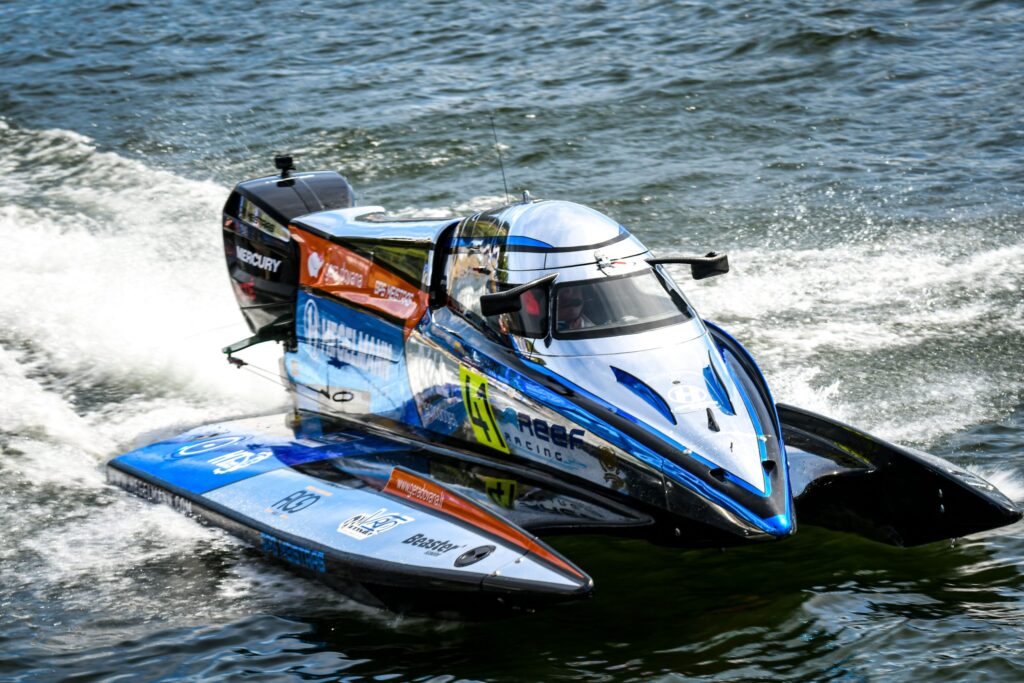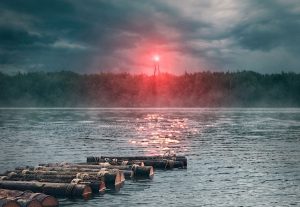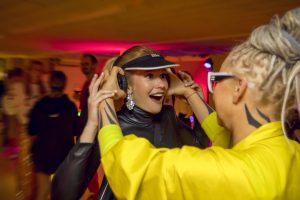Edgaras Riabko is a representative of a unique sport and undoubtedly the most prominent powerboat sport professional in Lithuania, who has been European champion several times. Currently preparing for the F2 Water Formula World Championships in Klaipėda, he says that all his attention is focused on one goal - to become F2 Water Formula World Champion. How much it costs to launch a car that is often called cosmic, what made him choose a sport that is not so popular in Lithuania, and what dangers lurk when manoeuvring in the water at 200 km/hr - Edgaras tells us in an open interview.
Powerboating is a long-standing family tradition
Although motor boating in Lithuania is celebrating its centenary this year, Edgaras himself assured that the popularity of the sport has waned considerably since independence. The motorboat community is not a large one, with only a few dozen athletes. However, Edgar jokes that he did not have a choice of what sport to do - he was just born into it.
"My dad was involved in powerboating for years. My older brother did the same, so I drove my first motorboat at the age of ten. I had no other choice, because it was the family's pastime and we had the equipment ourselves, so I didn't have to make a big investment right from the start and I had all the conditions to train and grow. As the years went by, I changed the classes of motorboats, they became more powerful, faster and faster, and my own skills improved. From the Formula 5 championships and the results I achieved, I was finally able to enter the F2 class, but it took me twenty years to get there. Naturally, this sport is not going anywhere in our family - this year my seven-year-old son won gold at the World Championships, and he did it before me," smiles Riabko.
Organisational issues complicate preparations for the World Championships
After being F2 European Champion twice and winning World Champion bronze and silver medals, Edgaras Riabko now has only one goal in mind - World Gold. However, this year the athlete's preparation for the World Championships is hampered by a lack of time - contributing to the organisation of the World Championships in Klaipėda for the first time and the promotion of the sport in Lithuania, there is not as much time left for training in the lagoon as one would like.
"In our sport, it's not just about training in the water, but also about physical preparation. I myself try to jog regularly, play tennis and make sure I go to the sauna. Getting used to the heat is very important - wearing a special suit, boots, pads, undercoat, helmet and a safety vest can get you soaking wet just by walking to your car to get in the water. Often the race takes place in the extreme heat outside, which heats up the car itself and the temperature in the capsule, so it's hard to survive without being prepared. In this sport, championship preparation is also very much about money. With the enormous resources available, it would be possible to train in the water every day, just as it would be possible to improve the car every time, which immediately increases the chances of achieving better results. However, this year I am paying a big price for my preparation by contributing to the organisation of the World Championship, which is very time-consuming, because we are doing everything at world level. In addition, with the opening of the first motorboat academy for children in Lithuania, I also have a big commitment - I have to go to camps with the little ones during the preparation, and I have to do their training. But it's not for nothing, because this year my kids won three gold medals at the World Championships", says Edgaras.
Powerboating is an expensive pleasure
The sportsman assures that powerboating is not cheap. On his way to qualifying for the F2 League, Riabko has had to make a number of sacrifices - he's sold his car to buy a new engine, and has always spent most of the money he earns from his business on upgrading or improving his equipment. Investments in this sport, Edgar says, can be endless - before each championship you can renew a car that often costs hundreds of thousands.
"This sport is very much about money and often the top rankings are held by the richest teams in the world, with huge investments and state-of-the-art equipment. I wouldn't say this sport is a goldmine, especially if you haven't reached F2 level. A more appropriate name would be a very expensive hobby. And although I can now work with sponsors, you don't earn enough from this sport to live comfortably, because every penny is invested in the team, the equipment, upgrades and improvements. You could say that the goal for a Formula One driver should be F1 - that's where the level goes even higher, the investment is huge, the salary is high, and the driver can concentrate on training, because the whole team is already responsible for upgrading his technique and finding sponsors. I am happy that at this stage of my life, I have to invest less and less of my own money," says Riabko.
World gold and F1 league
The European champion himself has received several offers to join F1 teams after winning European championship medals. However, they didn't seem promising enough for Edgar to take the plunge.
"I often compare our sport to basketball, saying that I'd rather be the best in the Euroleague than sitting on the bench in the NBA, and the same with F2 and F1 leagues. I'm not saying I don't dream of a higher league, but I have given myself my word that I will only consider joining a new team when I become a world champion. I already have other titles, so this is the only one that matters. I am ready, I have a great team and most importantly I have the biggest desire to win," says Riabko.
Water formulas costing six figures can reach speeds of more than 200 km/h in competition. And although the driver has many years of experience and has long since lost his fear of climbing into the car, he says that until today, the first few seconds are the most dangerous in this sport. With dozens of cars lined up in a single line, and after the start, heading towards the same corner at top speed, the chances of a collision are very high.
"Precision, experience and the right weather conditions and a good starting position during the race make a big difference. The biggest excitement is the starting position, you have to pilot the car precisely to not only get ahead but also to avoid colliding with the competitors in the corner. Later on, the pulse calms down, but the adrenaline remains high throughout the race, both for me and for the spectators. If there are strong winds during the race, waves come up - the piloting becomes even more difficult and the risk of a car flipping over when it's up in the air increases. We also train for this - we simulate crashes in swimming pools, we have a special protocol on how to deal with a flip while you're upside down watching water rushing into the cockpit at high speed. I won't hide the fact that no matter how hard you try to stay calm, when this happens you often panic", says Riabko.
The adrenaline-packed F2 Water Formula World Championship will be held for the first time this year at the Klaipėda Port Cruise Ship Terminal. On 12 - 13 August, the championship can be watched live or live on LRT and lrt.tv











